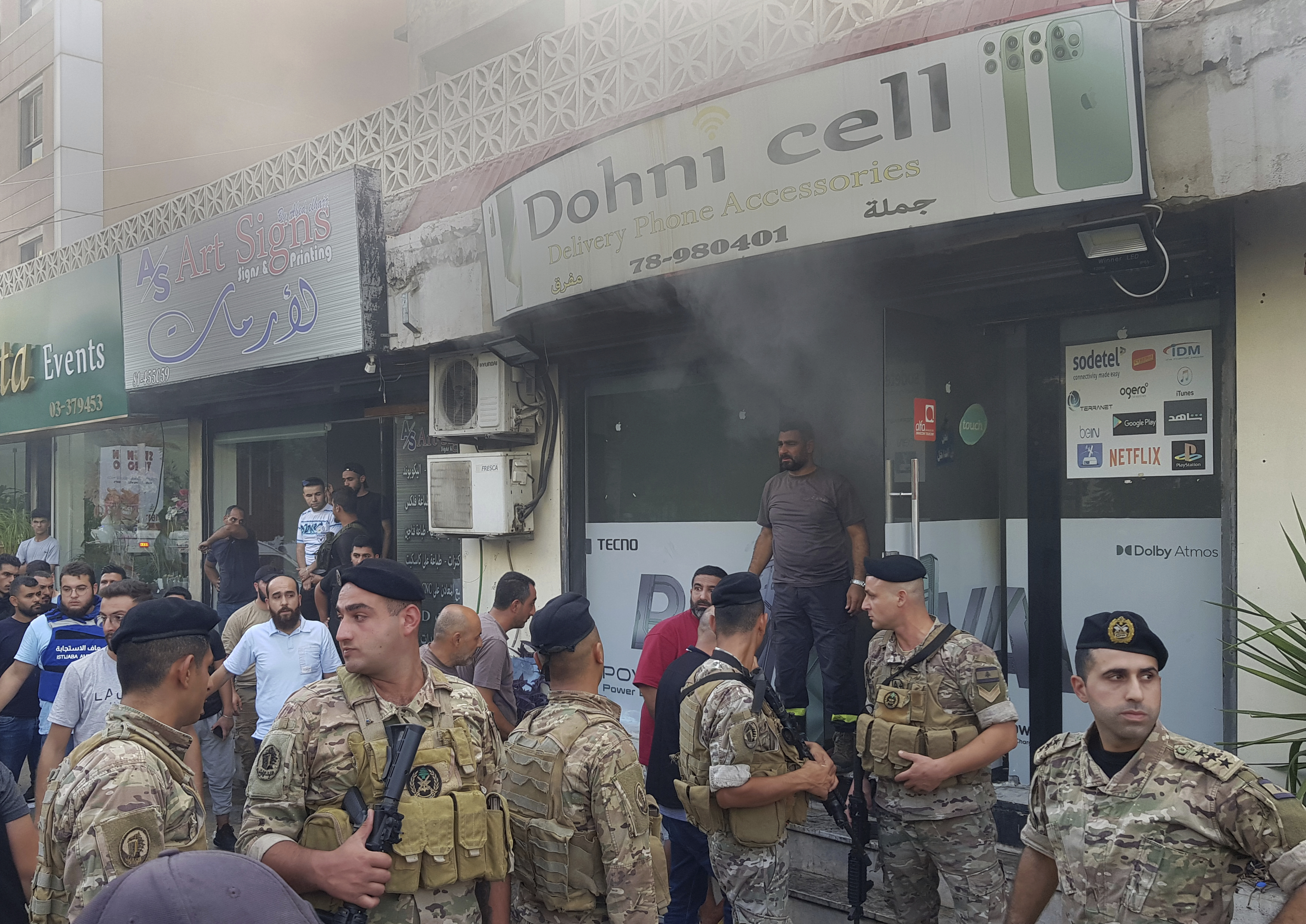
Opinion editor’s note: Editorials represent the opinions of the Minnesota Star Tribune Editorial Board, which operates independently from the newsroom. ••• The ferocity of the Israel-Hamas war has overshadowed the concurrent conflict on Israel’s northern border with Hezbollah. That may not be the case much longer.
Lebanon-based, Iranian-backed Hezbollah has vowed to retaliate for an extraordinary attack that killed at least 12, including two children, and injured at least 2,800, including Iran’s ambassador to Lebanon. The method was a simultaneous detonation of electronic pagers used by Hezbollah, which Israel, the U.S.

, and many other nations consider a foreign terrorist organization (just as they do Hamas). The low-tech devices had been deployed by Hezbollah in order to avoid detection or surveillance on other higher-tech, connected devices — the type of devices that Israel said on Tuesday were part of a foiled Hezbollah plot to target a retired senior member of Israel’s security services. The Israeli government has declined to comment, but sources have reportedly confirmed it was behind the attack.
Lebanon’s prime minister called the attacks “criminal Israeli aggression.” On Wednesday came more attacks, this time the devices targeted including hand-held radios. The casualty count rose by another 14 and at least 450 were wounded.
Hezbollah’s promised response risks an escalation of an already destabilizing conflict. Currently there are an estimated 150,000 people on both sides of the Israel-Lebanon border who have been displaced. The context of this conflict was considered by Dennis Ross , a veteran of Mideast diplomacy, when he was in the Midwest on Wednesday for the annual meeting of the Jewish Community Relations Council of Minnesota and the Dakotas.
Ross, a distinguished fellow at the Washington Institute for Near East Policy, had a diplomatic career that spanned administrations from George H.W. Bush to Barack Obama.
He said that the Mideast “is more perilous than it’s been before because of the multiplicity of actors who have weapons that we have.” He pointed particularly to Iran, which is poised to start supplying Russia with not just drones but missiles. “But I also think there’s kind of a built-in tempering, because of Iran’s fear of a direct war with us.
” That’s in part the result of the U.S. show of force in the region since Hamas’ Oct.
7 terrorist attack on Israel. Hezbollah, the most significant of these nonstate actors, is “10 times stronger, 10 times more developed, has 10 times the military capability and probably 10 times the staying power,” Ross said, adding that an all-out war with Israel would “be a very different war” that would “cover all of Israel” and lead to “the destruction of most of Lebanon’s infrastructure,” but also a war that would “isolate Israel further.” There are multiple possible motivations for Israel to detonate the devices now, said Ross.
Perhaps Hezbollah had been tipped off on Israeli capabilities, or this could simply be a prelude to an all-out war, he surmised. “It would have undercut their ability to do much of what [Hezbollah] would need to do in a war,” said Ross. “You would have completely disrupted all of their communication, they couldn’t have trusted anything they had, they would have been looking for ‘who is the traitor in our midst?’” Indeed it’s notable, said David Daoud , a senior fellow at the Foundation for Defense of Democracies who focuses on Israel, Lebanon and Hezbollah, that in recent days the Israeli government “officially declared that the return of civilians to their homes in the north is now an official goal of the war effort.
” Avoiding a broader conflagration is in the world’s best interest and what’s motivating the nonstop shuttle diplomacy from the Biden administration, which claims it had no prior knowledge of either attack. The key to avoiding an all-out Israel-Hezbollah war, which could include Iran, is ending the war in Gaza with a cease-fire and hostage deal. “The first time I heard [Israeli Prime Minister Benjamin Netanyahu] define victory was in his speech to Congress, where he said [it included] dismantling [Hamas’] military and making sure they don’t control Gaza.
” Now, Ross continued, “they don’t control Gaza, and their military is gone and their ability to recreate their military is gone. That’s victory. Now you can declare that means the war ends, provided the hostages are released.
” Implementing such a plan wouldn’t be easy, Ross readily acknowledged. But the U.S.
and other countries must keep trying to stave off a wider war, which would turn a crisis into a catastrophe..














